Sports InfoRMATION
Trust Your Chiropractic Issues to a Doctor with More than 35 Years Experience
Dr. Todd Elwert has treated thousands of patients from all over the Tri-State area. Many of them were treated for basic neck and back injuries or pain. Hundreds of others, from all over the state and the country, were treated as part of Dr. Elwert’s athletic development programs.
Former Team Chiropractor for Miami University, Northwest and Colerain High Schools and several local pro sports teams, Dr. Elwert has worked with local athletes and nationally known sports stars.
Golf Health & Fitness
Football
Soccer
Baseball
Basketball
Cross Country Running
Volleyball
Sports Info
Trust Your Chiropractic Issues to a Doctor with More than 25 Years Experience
In the last 25 years, Dr. Todd Elwert has treated thousands of patients from all over the Tri-State area. Many of them were treated for basic neck and back injuries or pain. Hundreds of others, from all over the state and the country, were treated as part of Dr. Elwert’s athletic development programs.
As the team Chiropractor for Miami University, Northwest and Colerain High Schools and several local pro sports teams, Dr. Elwert has worked with local athletes and nationally known sports stars.
Basketball
Golf Health & Fitness
Cross Country Running
Baseball
Football
Volleyball
Golf Health & Fitness
Physical Fitness and Golf
Physical Fitness and Golf
Fitness plays a major role in golf and many golfers workout regularly. You can see this whenever you watch a PGA tournament these days. Many of the top golfers are also in top physical shape. Unfortunately, many golfers are performing exercises or stretches that negatively affect their game. Golf is like any other sport. You need sport specific exercises and stretches to optimize the effects of the workout. Strength, balance, flexibility, mobility and stamina all play an integral role in your golf swing/game. These elements need to be properly and incorporated in your fitness program. Many swing faults can be reduced or eliminated when physical limitations are addressed.
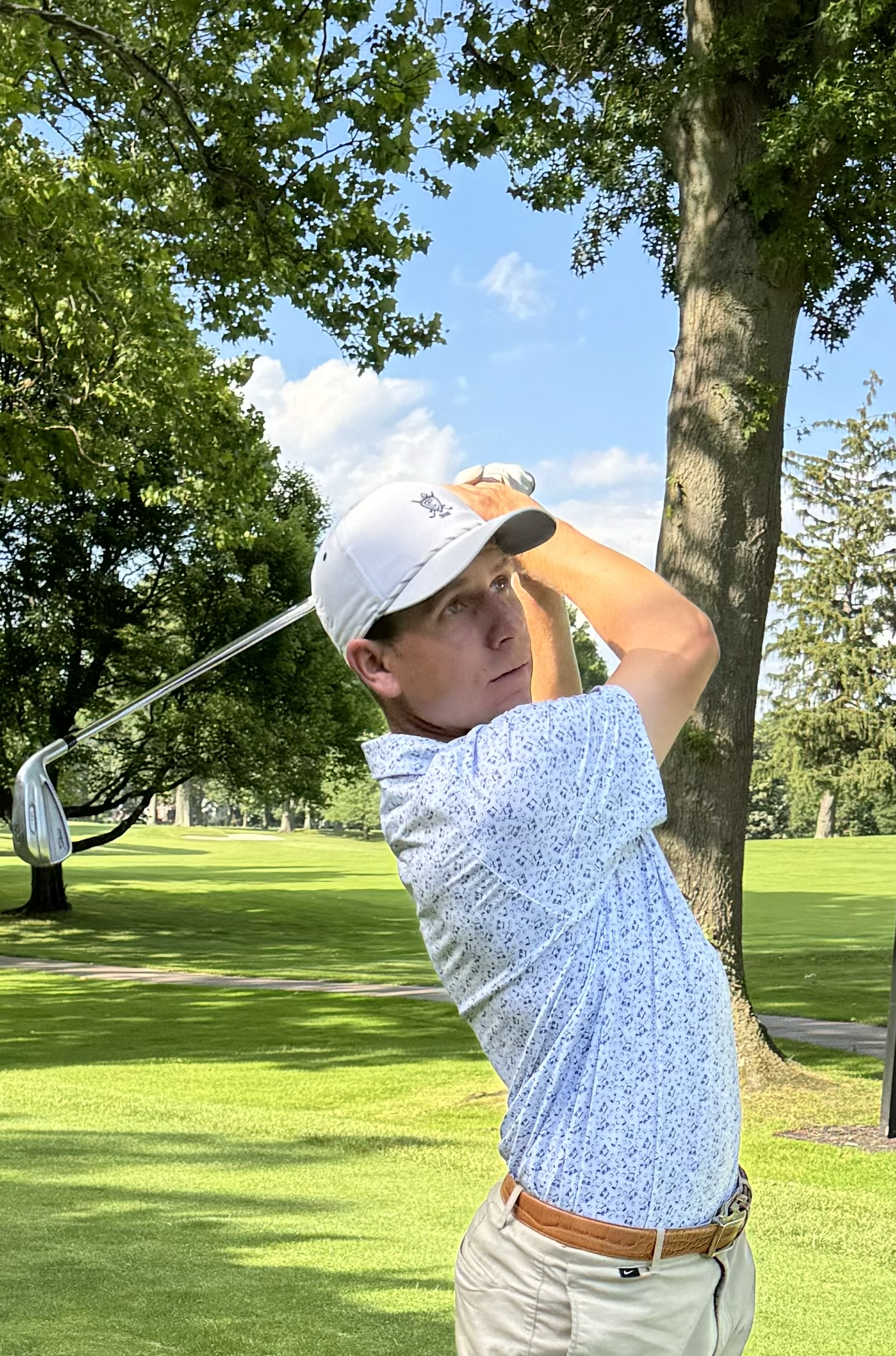
Our golf fitness program focuses on the following:
Flexibility
Balance
Strength
Endurance
Coordination
Posture
Typical Golf Issues and Injuries
Dr. Elwert, a TPI-Certified Golf Fitness Instructor, offers tailored fitness programs to enhance your golf performance. By conducting a comprehensive fitness analysis, he identifies physical limitations and creates a customized plan focusing on golf-specific exercises. This approach improves strength, flexibility, posture, and coordination, helping you achieve greater distance and accuracy in your game while preventing injuries.
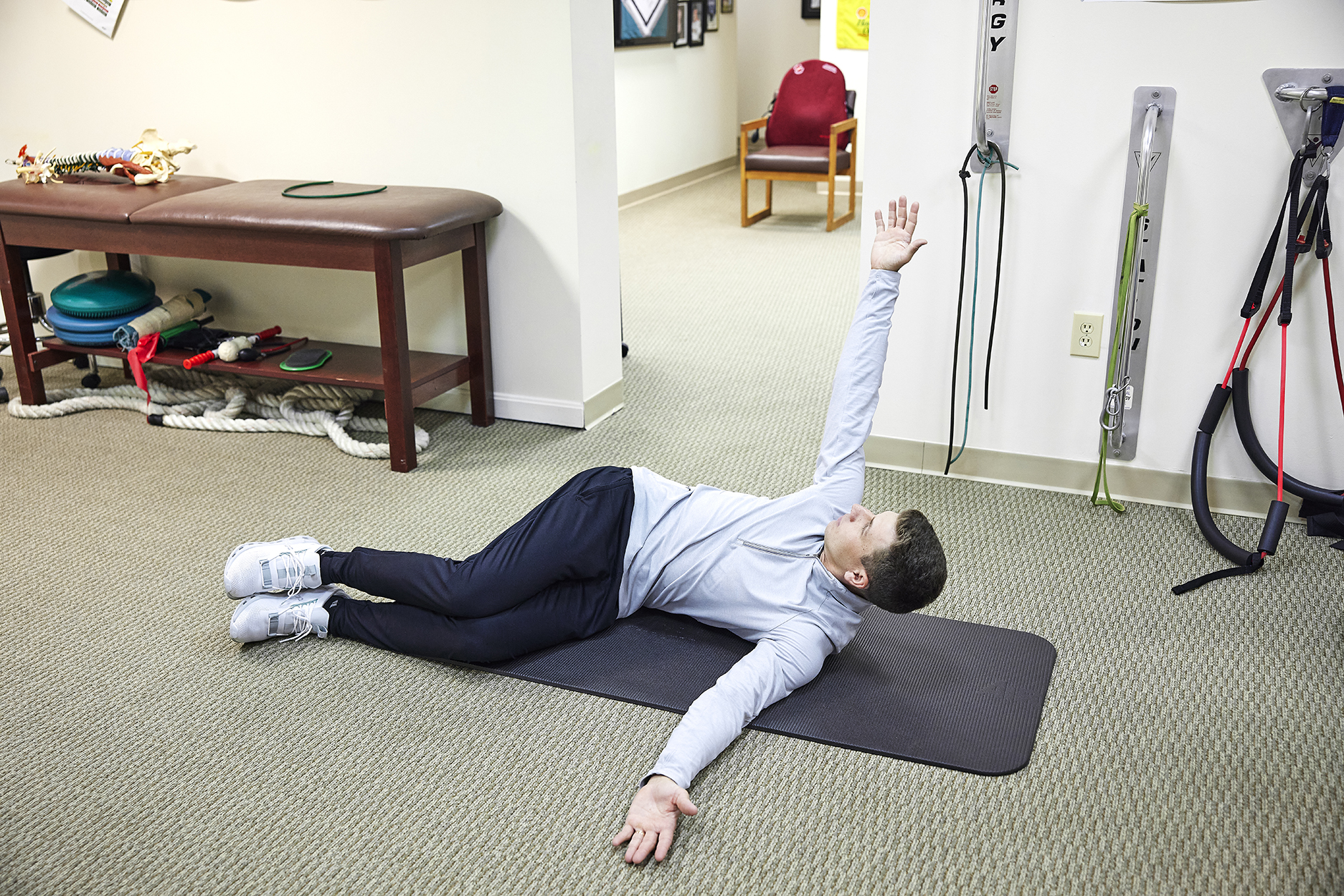
Physical conditioning is vital to getting the most out of your golf game. With Todd Elwert, you will work together to find physical weaknesses and develop a program targeting those weaknesses. You will not only get better, you will also increase your range of motion and get stronger and flexible at the same time, which is critical to your golf game. – Kevin, Golf Pro
Football
Football Tips and Issues
Football
Times sure have changed! Baseball might be America’s favorite pastime, but football has taken over as America’s favorite sport. From the midget leagues to the pros, people just love their football.
With the increased passion for this great sport, the number of football injuries has also increased.
As with any sport, there are targeted exercises that help alleviate injuries. Here are a few to start on in the off season and keep up with as the season progresses.
Preventing hamstring injuries
Chronic Hamstring Injuries: Athletes, even strong ones, may struggle with hamstring injuries despite adequate strength and flexibility.
Injury Mechanism: Understanding the injury mechanism is crucial, as the hamstring functions eccentrically during sprinting.
Eccentric Strength: Eccentric hamstring strength is vital for decelerating the leg at maximum length.
Inefficient Contraction: Overreaching with the lead leg can lead to ineffective hamstring contractions when lengthened.
Synergistic Dominance: Weak gluteals can lead to hamstrings taking over hip extension, resulting in overuse and strain.
Testing for Dominance: A bridge test can reveal hamstring dominance and weak glutes through cramping sensations.
Corrective Exercise: Perform single-leg bridges with one knee flexed to strengthen glutes over hamstrings.
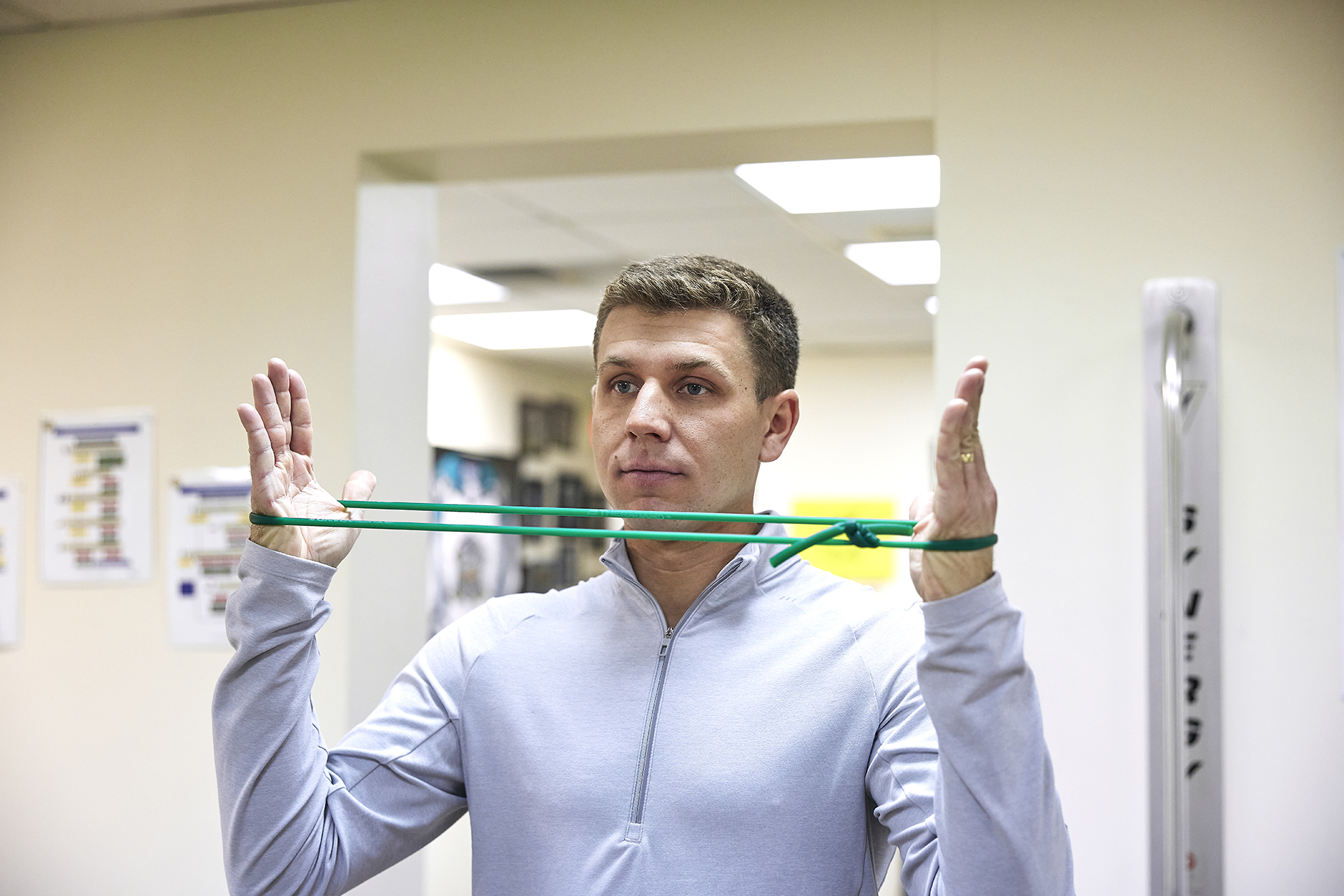
ACL injury prevention
ACL injuries are increasingly common among athletes due to poor training programs. Incorrect landing mechanics, such as misaligned knees and improper posture, contribute to these injuries. Efficient landing should involve proper foot placement, knee alignment, and hip positioning. To prevent ACL injuries, focus on squat progression and landing exercises for both single and double legs.
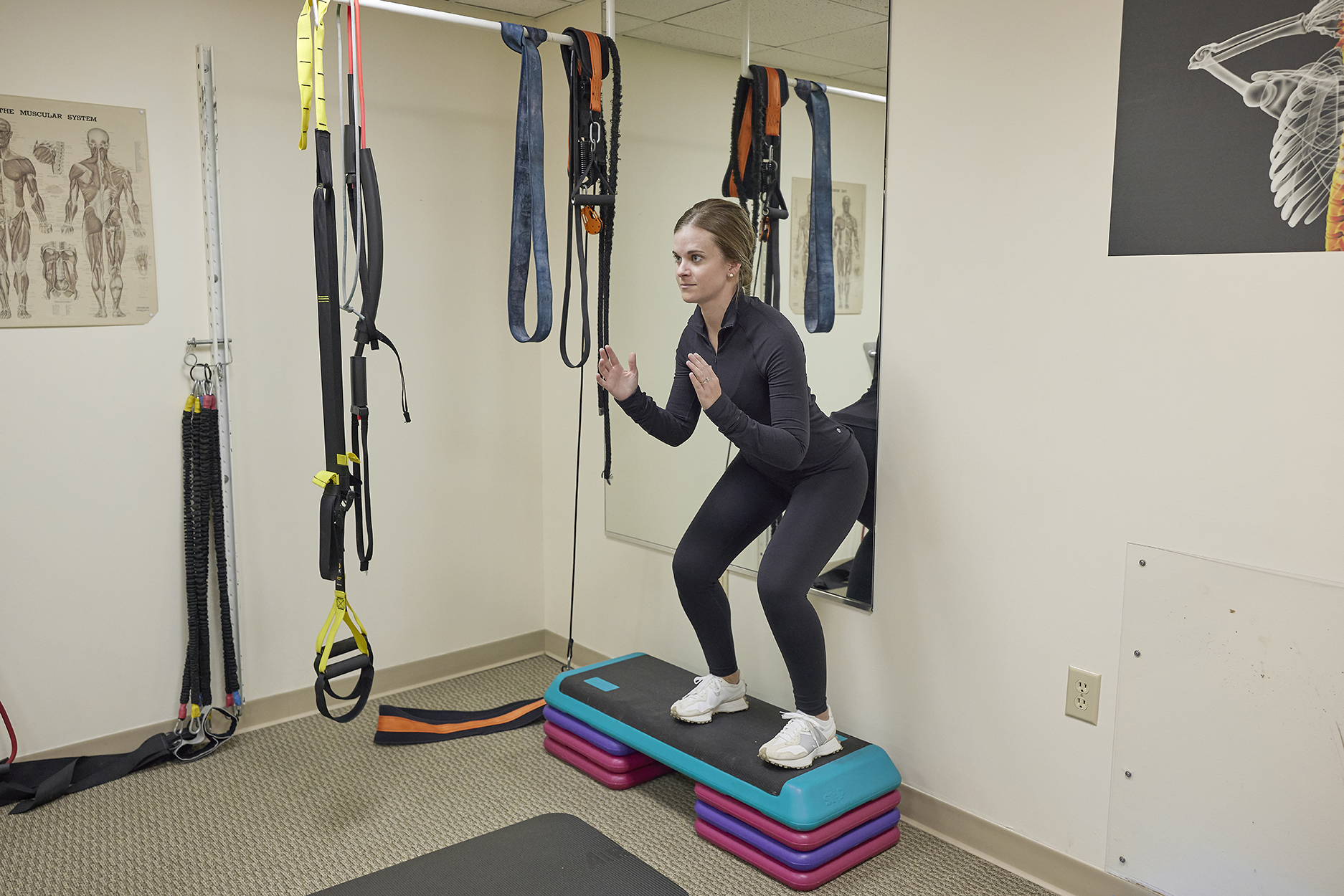
Jumping Exercises
* Box Jump
* Single Leg Box Jump
How do I improve hamstring flexibility?
Muscle tightness often indicates a lack of stability, such as an unstable core, rather than an issue with the muscle itself. Stretching a tight muscle, like the hamstrings, without addressing the root cause can lead to increased instability and injury risk. If tightness persists, focus on strengthening stabilizing muscles instead of just stretching.
* Lateral Squat
* X Walk
* Drop Lunges
Soccer
Tips and Issues for Soccer Players
How to loosen up a tight ilio-band
Have you ever felt tightness along the outside of your thigh? That is your iliotibial band, a long tissue that attaches at your knee into a muscle called the tensor fascia latae (TFL) on your hip. When the TFL becomes overly stressed, it pulls on the iliotibial band. Many runners who complain of iliotibial tightness will continue to stretch the iliotibial band but fail to address the real problem – weak gluteal muscles.
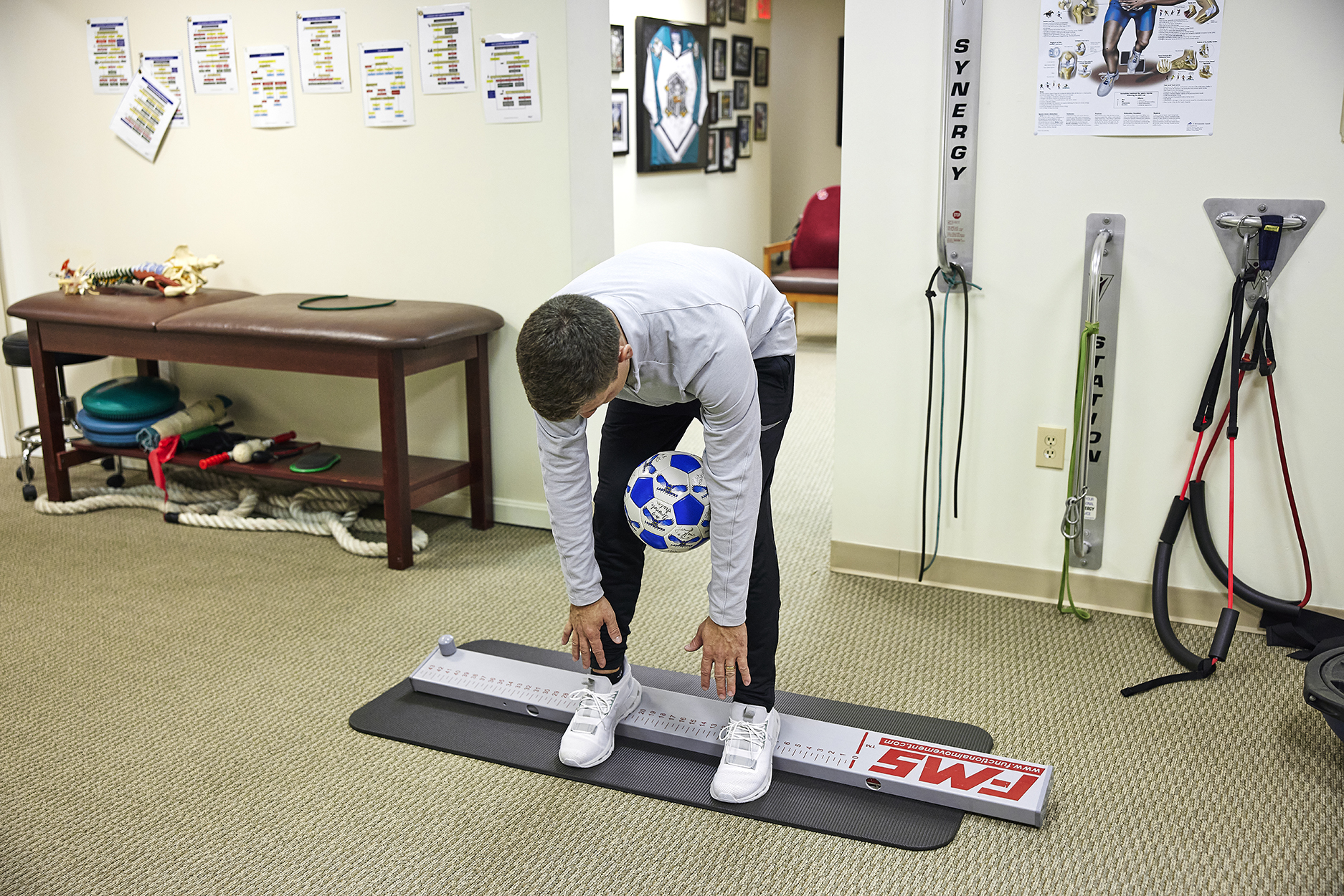
Preventing hamstring injuries
Chronic Hamstring Injuries: Athletes, even strong ones, may struggle with hamstring injuries despite adequate strength and flexibility.
Injury Mechanism: Understanding the injury mechanism is crucial, as the hamstring functions eccentrically during sprinting.
Eccentric Strength: Eccentric hamstring strength is vital for decelerating the leg at maximum length.
Inefficient Contraction: Overreaching with the lead leg can lead to ineffective hamstring contractions when lengthened.
Synergistic Dominance: Weak gluteals can lead to hamstrings taking over hip extension, resulting in overuse and strain.
Preventing hamstring injuries
Chronic hamstring injuries in athletes can stem from underlying issues rather than just tightness or weakness in the hamstrings. Key factors include eccentric strength during sprinting, inefficient muscle contractions due to overreaching, and synergistic dominance where hamstrings overpower weaker glutes. To prevent injuries, assess glute strength and incorporate exercises like single-leg bridges to enhance glute activation.
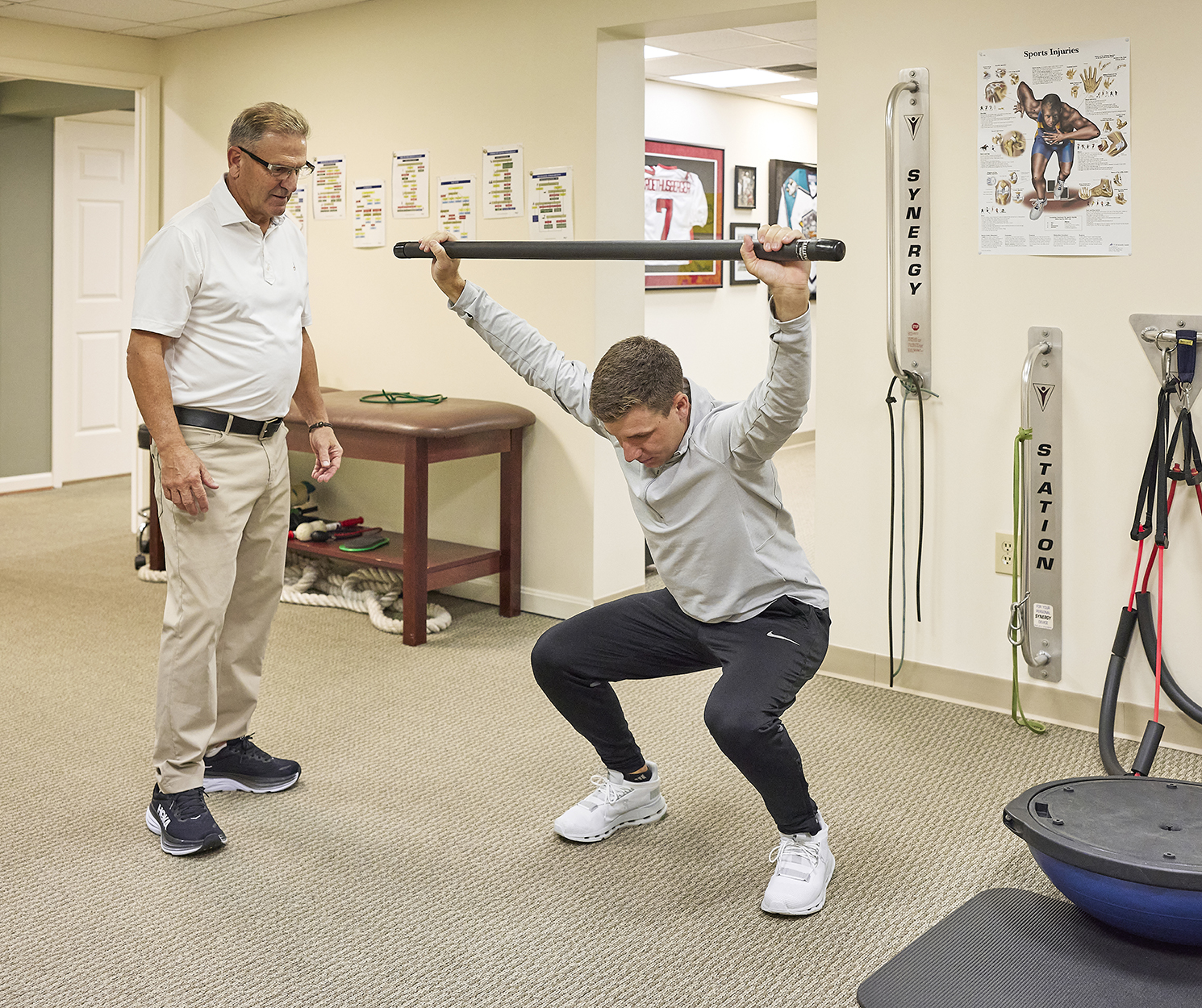
How do I improve hamstring flexibility?
Muscle tightness often signals instability elsewhere in the body, like a weak core. Stretching a tight muscle, such as the hamstrings, without addressing underlying issues can increase injury risk. If hamstrings remain tight despite stretching, focus on core stability and targeted exercises instead.
X Walk
Drop Lunges
Lateral Squat
Baseball
Baseball Tips and Issues
Should throwing athletes, such as baseball pitchers, lift weights overhead?
Scapular Movement: Critical for proper arm function during elevation.
Impingement Prevention: Correct scapular placement protects the coracoacromial arch.
Rotator Cuff Stability: Strong scapular muscles support safe humeral movement.
Standing Overhead Lifts: Should be performed standing for optimal force generation.
Leg Contribution: Legs can provide up to 60% of a pitcher’s throwing velocity.
How can I prevent ACL injuries?
Increasing Commonality: ACL injuries are frequent among athletes at all levels.
Training Concerns: Poor training programs contribute to the prevalence of these injuries.
Landing Mechanics: Incorrect landing positions are a major cause of ACL injuries.
Efficient Landing: Key factors include landing on the balls of the feet, knee alignment, hips back, and a slight forward lean.
Prevention Focus: Start with squat progression exercises, then progress to landing exercises.
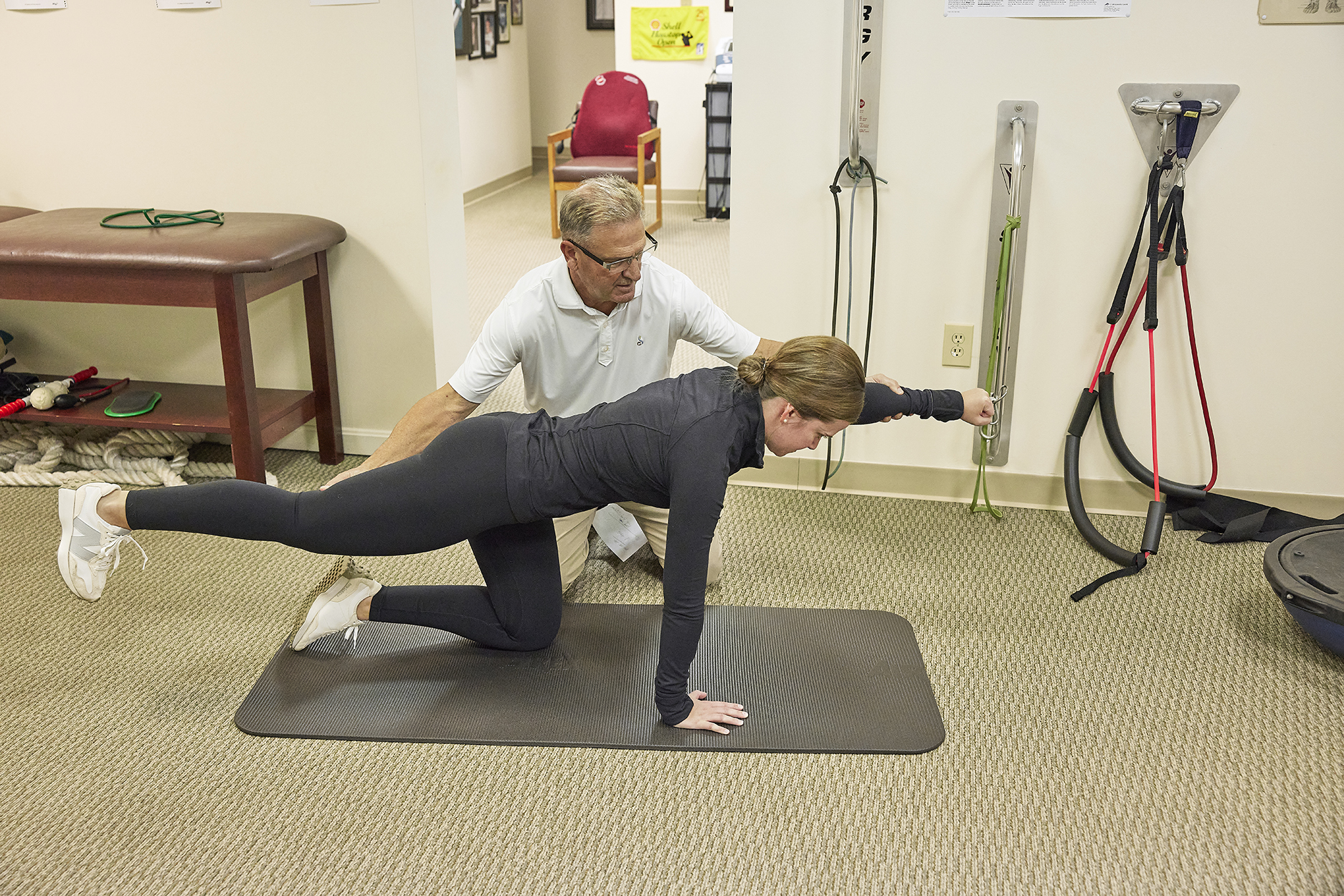
How to loosen up a tight ilio-band
Tightness along the outer thigh is often due to tension in the iliotibial band, linked to the tensor fascia latae (TFL) in the hip. When the TFL is stressed, it can cause discomfort in the iliotibial band. Many runners mistakenly focus on stretching the band without addressing weak gluteal muscles. To relieve tightness, use a foam roller on the iliotibial band, TFL, quadriceps, and hamstrings.
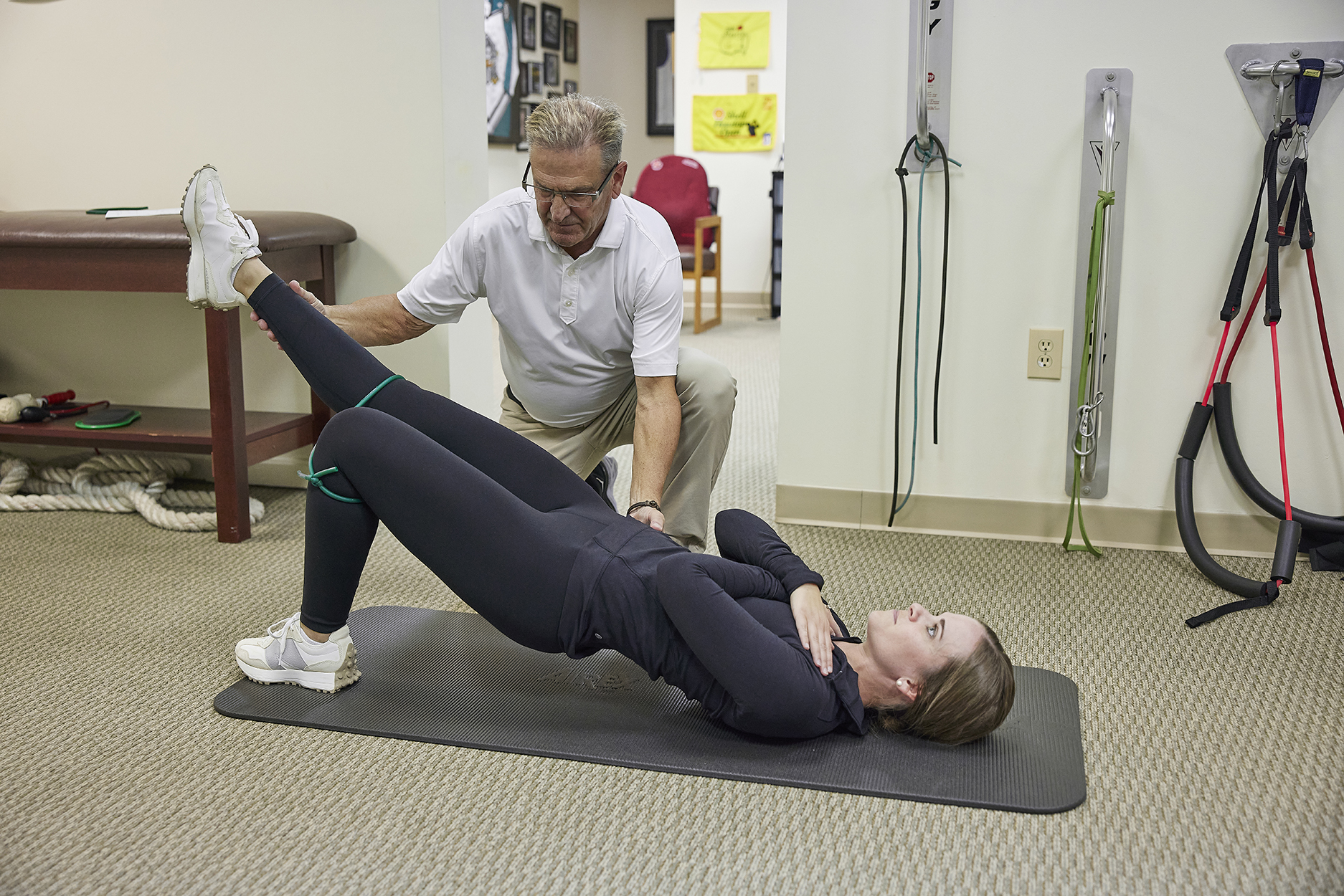
How do I improve hamstring flexibility?
This is a question I receive on a daily basis. Muscles often tighten up because your body is trying to create stability where it is lacking. For instance, you might think your hamstrings are tight, but the underlying issue could be an unstable core. So if you simply improve the flexibility of the tight muscle, you may actually be removing your body’s point of stability. As a result, your body can become more unstable, increasing your risk of injury. If you’ve been stretching your hamstring for years and they are still tight, it is not a hamstring issue. Try these exercises instead.
Lateral Squat
X Walk
Perfect Toe Touch
Basketball
Basketball exercises:
6 exercises to boost your vertical leap:
Drop squats
Off box stabilization
Squat jump with counter movement
Box blast with counter movement
Squat jump with counter improvement
Drop squats to jump and stabilize
How to improve lateral speed for basketball
You may be able to run up and down the court in flash, but how well do you move side-to-side? Your lateral speed is one of the most important factors when playing defense. There is a lot of acceleration and deceleration needed, so it is important to loosen up your hips and groin.
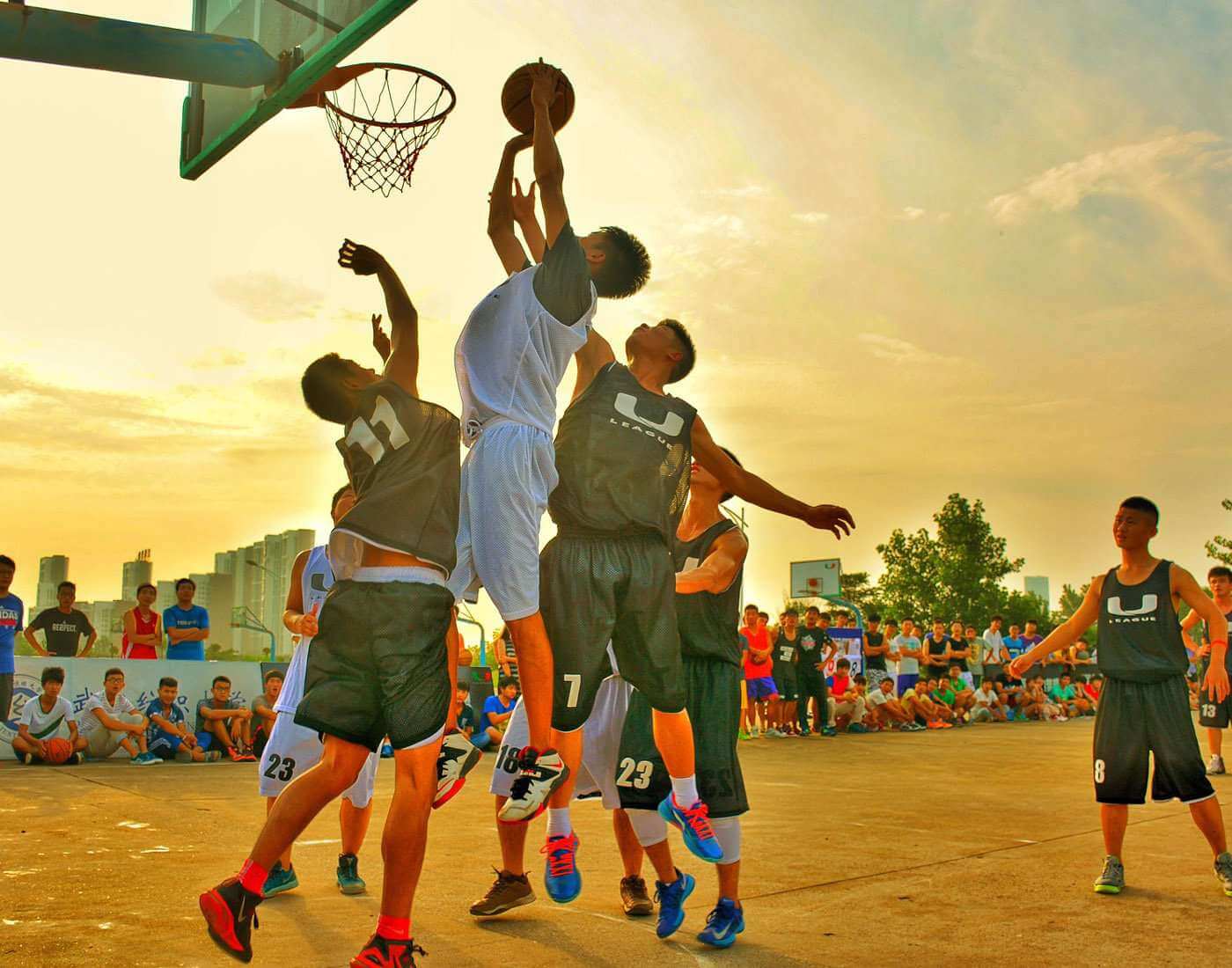
ACL Injury prevention
Common ACL Injuries: Increasingly prevalent among athletes at all levels due to poor training programs.
Landing Mechanics: Incorrect landing positions are a major cause of ACL injuries.
Efficient Landing: Key elements include landing on the balls of the feet, knee alignment, and maintaining a good squat position.
Ankle Mobility Importance: Dorsiflexion is crucial for proper movement in activities like sprinting and squatting.
Compensation Issues: Lack of dorsiflexion can lead to out-toeing and poor biomechanics, affecting performance.
Knee Function Impact: Limited ankle mobility can increase rotational torque at the knee, leading to potential injuries.
How to loosen up a tight ilio-band
Stress on Ankle Joint: Sports exert significant stress on the ankle, the most commonly injured joint.
Repetitive Strain: Frequent ground contact and plantar flexion can shorten plantar flexors and restrict joint movement.
Dorsiflexion Loss: Reduced dorsiflexion affects force dissipation, leading to issues in the ankle and up the leg.
Gait Impact: Limited dorsiflexion can cause an inefficient, bouncy gait due to early weight transfer to the forefoot.
Corrective Approach: Address ankle mobility with a combination of tissue lengthening, joint mobility work, and lifestyle modifications.
Complex System: The ankle and foot work together for effective locomotion, and optimizing their performance is crucial for athletes.
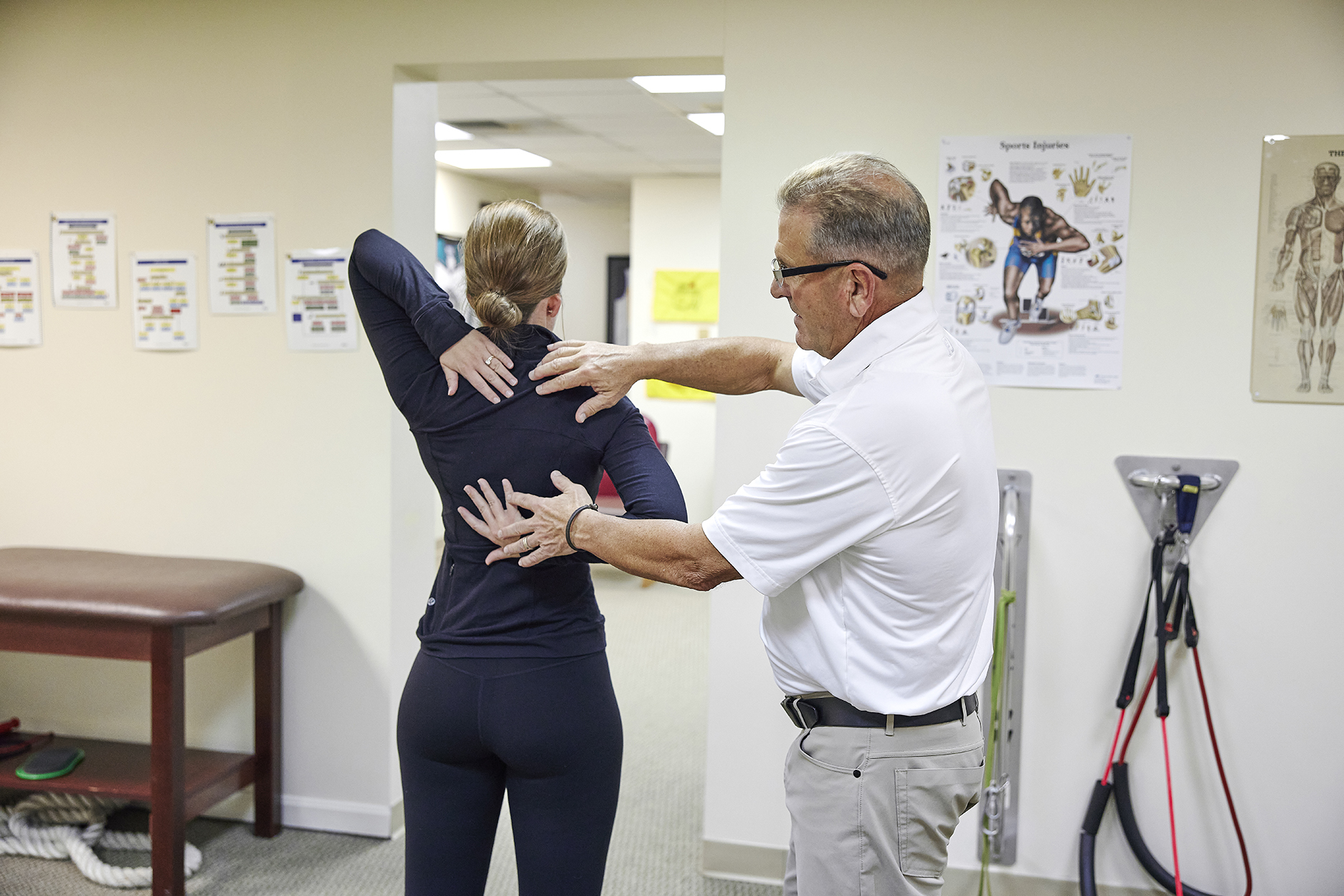
How do I improve hamstring flexibility?
This is a question I receive on a daily basis. Muscles often tighten up because your body is trying to create stability where it is lacking. For instance, you might think your hamstrings are tight, but the underlying issue could be an unstable core. So if you simply improve the flexibility of the tight muscle, you may actually be removing your body’s point of stability. As a result, your body can become more unstable, increasing your risk of injury. If you’ve been stretching your hamstring for years and they are still tight, it is not a hamstring issue. Try these exercises instead.
Lateral Squat
X Walk
Perfect Toe Touch
Cross Country Running
Exercise of the week
Gluteal Activation Wall Drills
Standing wall drills are a great way to activate the gluteals, while focusing on posture and proper mechanics.
The simplest form of gluteal activation using a wall involves just single leg stance pressing into the wall with a flexed leg for a set amount of time. Illustrated below:
Weight training for runners:
Since you run with your whole body, not just your legs, you need to strengthen your whole body. The number one thing we find with most runners is a complete absence of upper body training. Two to three upper -sessions each week will maintain strength and reduce the risk of injury while you increase your mileage.
How to loosen up a tight ilio-band:
Tightness Indicator: Tightness along the outer thigh signals tension in the iliotibial band.
TFL Connection: The iliotibial band is influenced by the tensor fascia latae (TFL) in the hip.
Weak Glutes: Tightness may stem from weak gluteal muscles rather than the iliotibial band itself.
Foam Rolling: Use a foam roller on the iliotibial band, TFL, quadriceps, and hamstrings for relief.
Strengthening Exercises: Incorporate gluteal strengthening exercises like bridges and band X walks.
ACL injury prevention:
Rising ACL Injuries: ACL injuries are increasingly common across all levels of sports.
Poor Training: Many injuries stem from inadequate training programs for young athletes.
Landing Mechanics: Incorrect landing techniques, especially knee alignment, are major causes of ACL injuries.
Efficient Landing: Key elements include landing on the balls of the feet, knee alignment, hips back, and a slight forward lean.
Prevention Focus: Begin with squat progression exercises, then advance to landing exercises for single and double legs.
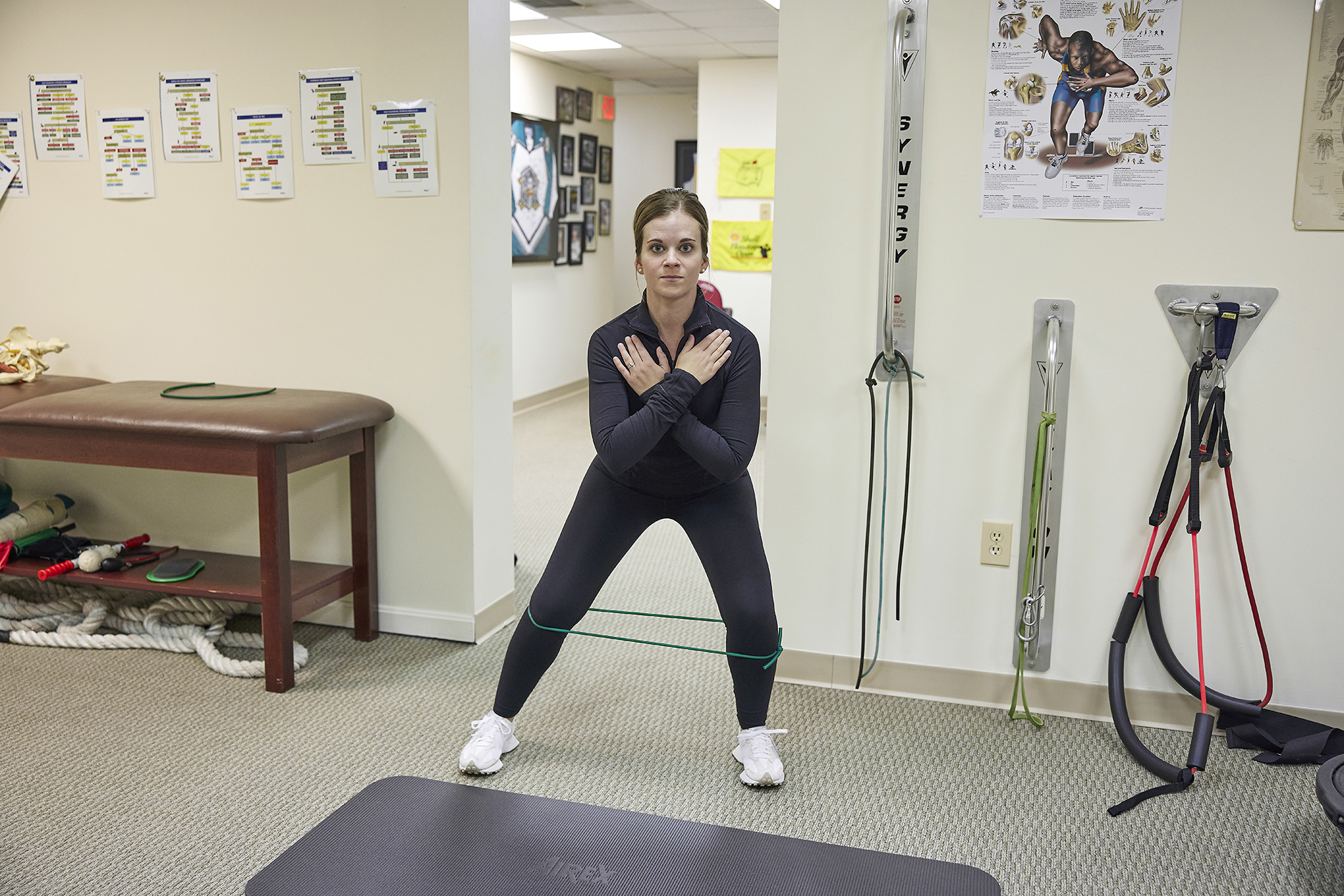
How do I improve hamstring flexibility?
Muscle tightness often signals a lack of stability elsewhere, like an unstable core. Stretching tight muscles, such as the hamstrings, without addressing the root issue can lead to greater instability and increased injury risk. If tightness persists despite stretching, focus on exercises that strengthen stabilizing muscles instead.
Lateral Squat
X Walk
Perfect Toe Touch
Volleyball
Fitness and Volleyball
to get in shape for volleyball!
Efficient movement is crucial in volleyball due to the sport's unpredictable nature, which can drain energy. Focusing on your "Pillar"—the hips, torso, and shoulders—enhances performance. Core-strengthening exercises like planks and gluteal bridge marching build stability, allowing for higher jumps, stronger swings, and quicker court coverage, ultimately improving your game.
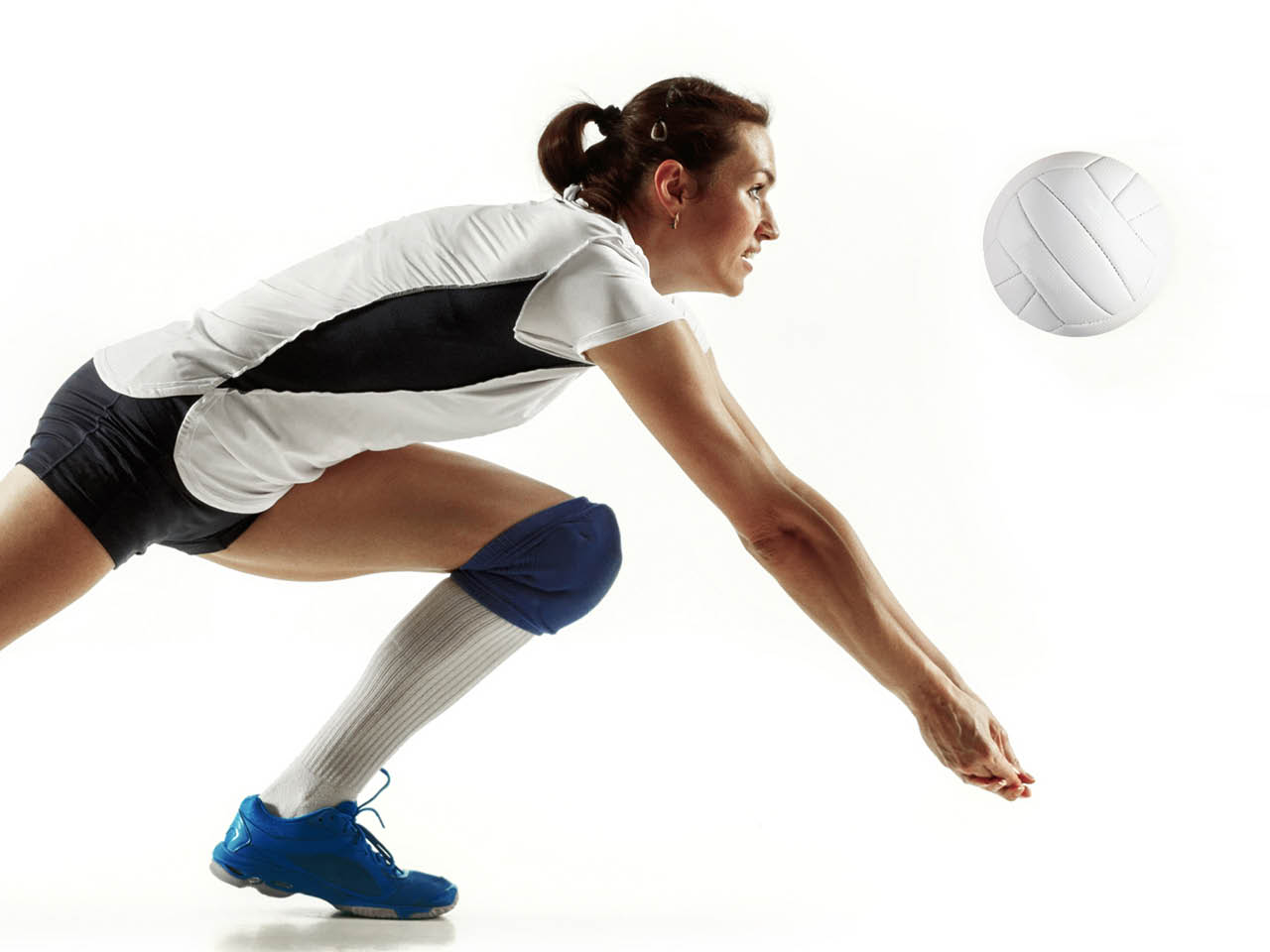
Foam roller technique
Foam rolling uses deep compression to release muscle adhesions, similar to loosening a tight shoelace knot. By targeting these knots—often caused by repetitive activity—you can restore muscle length and function. This technique is efficient and should complement your daily stretching routine.
How to loosen up a tight ilio-band
Tightness along the outside of the thigh is often due to the iliotibial band and tension from the tensor fascia latae (TFL). Many runners mistakenly focus on stretching the iliotibial band instead of addressing weak gluteal muscles. To alleviate tightness, use a foam roller on the iliotibial band, TFL, quadriceps, and hamstrings.
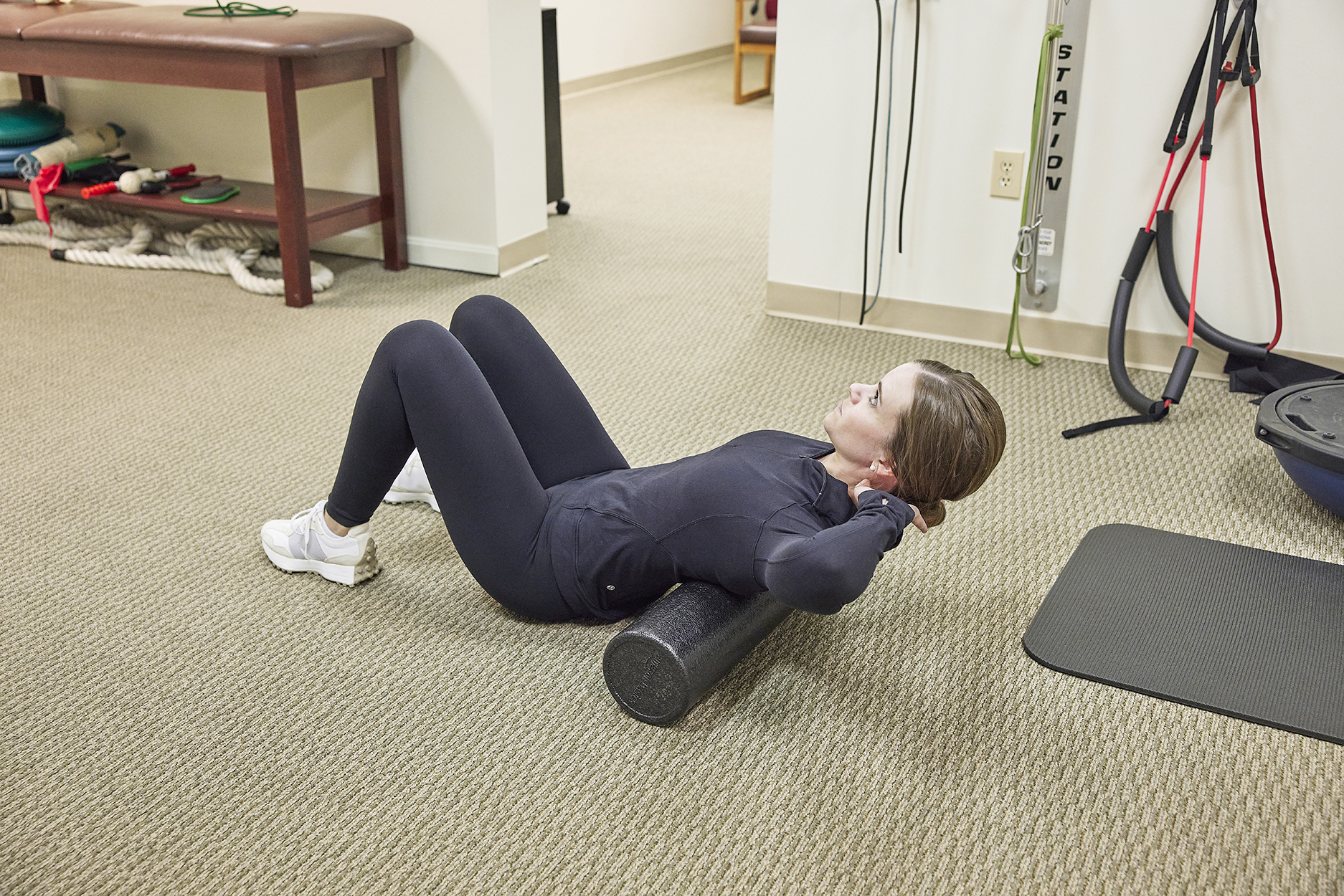
How do I improve hamstring flexibility?
Muscle tightness often indicates a lack of stability elsewhere, such as an unstable core, rather than an issue with the muscle itself. Stretching tight muscles like the hamstrings may not help if the underlying problem isn’t addressed. Focus on stability exercises instead.
Lateral Squat
X Walk
Drop Lunges
Chiropractic FAQs
Aligning Your Health, One Adjustment at a Time
Can too much texting be bad for my back?
It’s the newest syndrome. Today’s generation spends a large amount of time bent over their phones, keeping the cervical spine in a constant state of flex. Any prolonged positioning like this will certainly result in pain.It’s becoming such an problem, there is even an application you can purchase for your phone that will beep to indicate that you are holding your phone in the correct position to ensure proper posture in your cervical spine. I think, however, that awareness of the issue and knowledge of the proper positioning is all that is needed to prevent this type of back pain.
What is an adjustment??
Sometimes called a manipulation, an adjustment is a precise procedure in which a chiropractor applies a specific corrective pressure to a specific place on your spine or extremity to restore normal function. It can also relieve associated muscle and nerve tension, improved balance and assist in healing.
Is Chiropractic care safe?
Chiropractic care is remarkably safe. In fact, it is a conservative approach to your health that avoids invasive procedures or addictive drugs. Simply put, if it was not safe, my malpractice insurance would reflect that substantially.
Pain Relief is a phone call away!
(513) 741 - 4700
Our Customer Testimonials
Real Stories, Real Relief
Pain Relief is a phone call away!
(513) 741 - 4700

Dr. Elwert specializes in Cincinnati athletes suffering from repeated injuries in their respective sports. He is trained and certified in the use of FMS, or Functional Movement Screenings, to diagnose and correct the problems causing those injuries.
Browse Our Websites
Get in Touch
Copyright 1990 - 2026. All Rights Reserved. Powered by Chuck Beyers Media .
